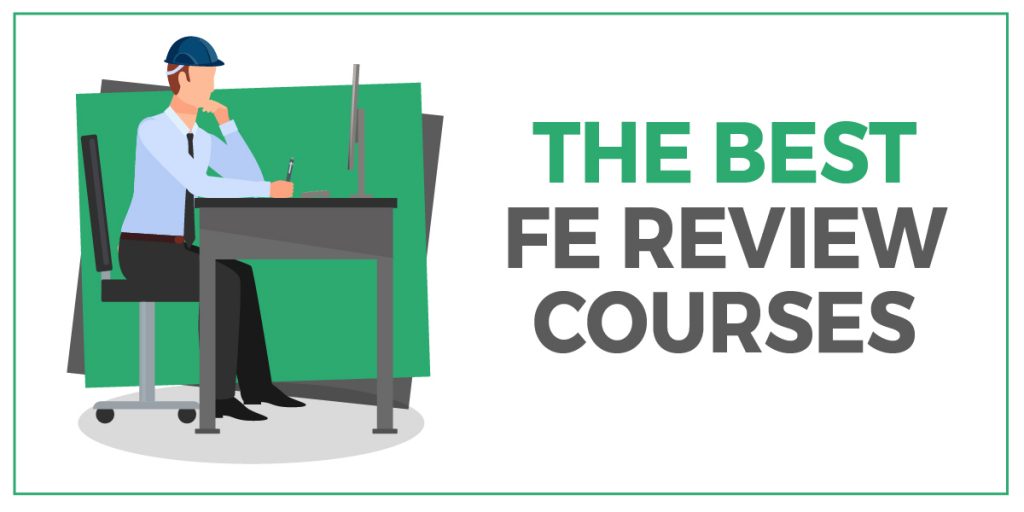Let’s be real: the FE Civil Exam can feel like a beast.
It’s a computer test with 110 questions on everything from math to materials. With a pass rate that hovers around 70 percent the first time and 35% the first time, it is a true testament of one’s engineering prowess that even the most prepared sometimes struggle to overcome.
But here’s the kicker: nail this exam, and you’re on the path to a career that averages salaries over $80,000. Not bad, right?
Plus, who doesn’t love a bit of job security and respect in the engineering world?
Whether you’re curious about what the exam covers, how others fare, or just how to ace it – we’ve got the answers. Stick with us, and we’ll break it all down, making your journey a tad bit smoother. Ready to dive in? Let’s go!
FE Civil Exam Structure
All FE exams are computer-based tests (CBTs). They are closed book with limited electronic references, and students have just 6 hours to complete the 110-question exam. This time limit includes a tutorial on the testing software and an optional 25-minute break period.
Students working on the FE exam will need to answer questions from 14 different content areas. Some sections contain more questions than others. All questions are multiple-choice, and you’ll want to complete every question, even if you’re unsure of the answer. That’s because incorrect questions don’t detract from your score!

Here’s a quick list of the FE Civil exam specifications:
- Mathematics and Statistics: 8-12 Questions
- Ethics and Professional Practice: 4-6 Questions
- Engineering Economics: 5-8 Questions
- Statics: 8-12 Questions
- Dynamics: 4-6 Questions
- Mechanics of Materials: 7-11 Questions
- Materials: 5-8 Questions
- Fluid Mechanics: 6-9 Questions
- Surveying: 6-9 Questions
- Water Resources and Environmental Engineering: 10-15 Questions
- Structural Engineering: 10-15 Questions
- Geotechnical Engineering: 10-15 Questions
- Transportation Engineering: 9-14 Questions
- Construction Engineering: 8-12 Questions
Make sure to check out the NCEES exam specifications for a more detailed breakdown of the topics in each content area.
Exam Dates and Fees
All FE exams are administered year-round at approved Pearson VUE Test centers. This changed when the NCEES switched from a pencil-and-paper format to computer-based testing (CBT). You’ll need to check with testing centers in your area to see which specific dates are available for testing.
Luckily, the FE exam is fairly inexpensive. You need to pay a $175 exam fee directly to the NCEES when signing up for your exam date. However, some state boards may require you to file a separate application and pay them as well. Make sure to check with your local licensing board for additional requirements.
Of course, the fee is not the only monetary cost you need to keep in mind with your exam.
To pass this engineering exam, you’re going to need to invest in test prep. Many repeat exam takers will tell you that their failing FE exam scores were due to lack of preparation and unwillingness to spend money and time on solid FE Civil exam prep materials.
FE Civil Exam Pass Rate
Speaking of passing the FE exam, looking at historical pass rates for the FE Civil exam can offer valuable insights. These pass rates give potential exam takers an idea of how they might fare compared to others and what score they should be aiming for.
Here are some of the most recent numbers:
2022: 62%
2021: 73%
2020: 66%
2019: 65%
While the passing score often hovers around 70%, according to the NCEES, only 62% of the 3,768 people who signed up for the exam last year passed. When you consider how few students were able to pass, you can see just how difficult this exam is.
Of course, that difficulty does translate into better opportunities down the line.
Career Opportunities

Earning your FE Civil certification will go a long way toward growing your career. ZipRecruiter reports that people with their FE can see salaries of over 10k a month. Plus, this salary will grow even higher once you’ve gotten enough experience to complete your PE certification.
But a high salary isn’t the only benefit to earning your FE.
There’s also a great deal of job security when it comes to civil engineering. The US Bureau of Labor Statistics (BLS) reports that employment growth for civil engineers is expected to increase by 8% in the next 10 years. This is due to the growth of US infrastructure and the fact that modern civil engineering emphasizes sustainability. As there’s a global push towards more sustainable and environmentally-friendly infrastructure solutions, civil engineers are at the forefront of designing and implementing these solutions.
States with booming global areas are also hot spots, as BLS reports that California, Texas, Florida, New York, and Illinois are the states with the highest employment levels for civil engineers.
As the global population continues to grow, there’s a need to develop new urban centers and expand existing ones. This includes everything from transportation networks to wastewater treatment plants.
Fundamentals of Engineering (FE) Continuing Education
There are currently no continuing education requirements for the FE certification. Plus, your Civil FE certification doesn’t expire at any point. However, you’ll eventually want to take the Civil PE exam and become a professional engineer. That certification will require you to complete continuing education courses to maintain.
Requirements for this vary based on what state you live in. Make sure to check with your local state engineering board to see how many CE credits you’ll need to keep your certification once you’ve earned it.
Getting Started with Your FE Civil Exam Prep
You’re going to want to start studying for your FE exam early. Sign up for your exam and mark down your test date. After that, you can start putting together a study schedule as you work towards passing your licensing exam. Ideally, you’ll want to pass on your first try.
Here are some additional tips to help you prepare for the FE Civil exam:
- Expect to take anywhere between 4-6 months studying for the FE exam. You’ll want to spend 10-15 hours each week working on your knowledge of Civil engineering concepts. Any more might make you burn out, and any less will slow your pace too much.
- Make sure to take a practice test whenever you finish studying for a major section of the exam. That way, you can see how well you learned the material before moving on.
- Lastly, you need to work on time management for the actual exam. Running out of time before you can finish can be devastating to your score. Identify the question types that take the longest so you can allocate your time effectively.

Effective FE Civil Exam Preparation
For those preparing for the FE Civil exam, the right preparation materials are crucial. Whether you’re using textbooks, online courses, or FE civil practice exams, it’s essential to familiarize yourself with the material you’ll be tested on and practice solving the types of problems you’ll encounter on the actual exam.
But what kind are needed to ensure a passing score on exam day?
Many students who take the FE exam often use a combination of study guides, practice exams, and courses to prepare. Remember, repetition is key; the more you practice, the better you’ll become at identifying the correct answers and managing your time effectively.
There’s plenty of places where you can find good study materials for the civil FE exam.
We personally recommend signing up for School of PE’s prep course. Students who complete their course typically have FE exam pass rates of over 90% for the FE civil exam.
Free FE Practice Exams
If you’re interested in free FE practice exams with free questions, you have a few options available:
- Certain courses, such as Capstone, offer free trials of their course that come with a set of practice exam problems.
- You can also check out PrepFE’s short practice exam. This free test is only 10 questions long but each one comes with a detailed answer explanation.
- I’ve also found PassFExam’s free practice exam to be a great way to work on time management while working on problems.
The Future After the FE Civil Exam
Once you’ve passed the FE Civil exam, it’s just the beginning. While this certification offers a significant boost in salary and job opportunities, further certifications, like the PE exam, can propel your career even further. Continual learning and continuing education courses will also be important, especially for those aiming for PE certification.
However, for now, the focus remains on the FE Civil exam – your key to unlocking the next stage of your engineering career.
FE Civil Exam FAQs
Q: Do civil engineers have to take the FE exam?
A: Anyone interested in becoming a certified engineer will need to take the FE and PE exams. You can find work without them, but it will be much more difficult and you’ll likely be paid a lot less than a certified engineer.
Q: What is on the FE exam?
A: There are 14 major content areas covered by the FE civil exam. Each of these splits into a set of subtopics. Make sure to check out the exam blueprint provided by NCEES for more detailed information.
Q: What is a passing score on the FE Civil exam?
A: The NCEES doesn’t make the passing score for the FE Civil exam public information. However, most civil engineers say that 70% seems to be the baseline passing grade for the exam each year.




